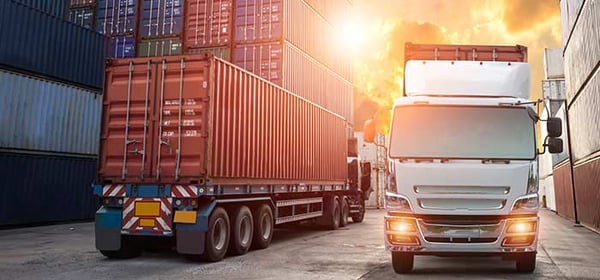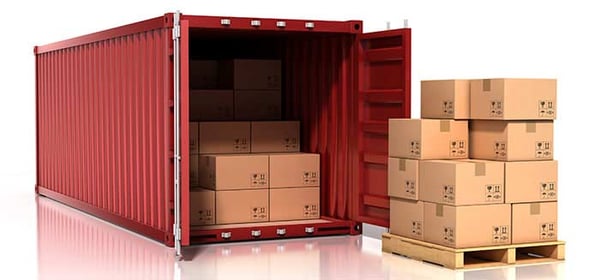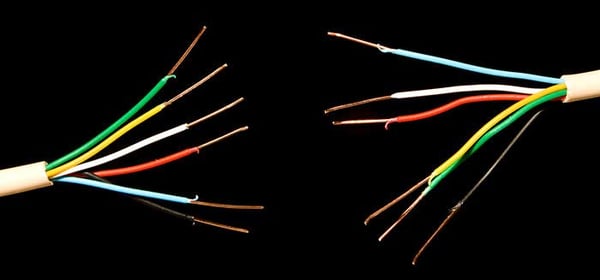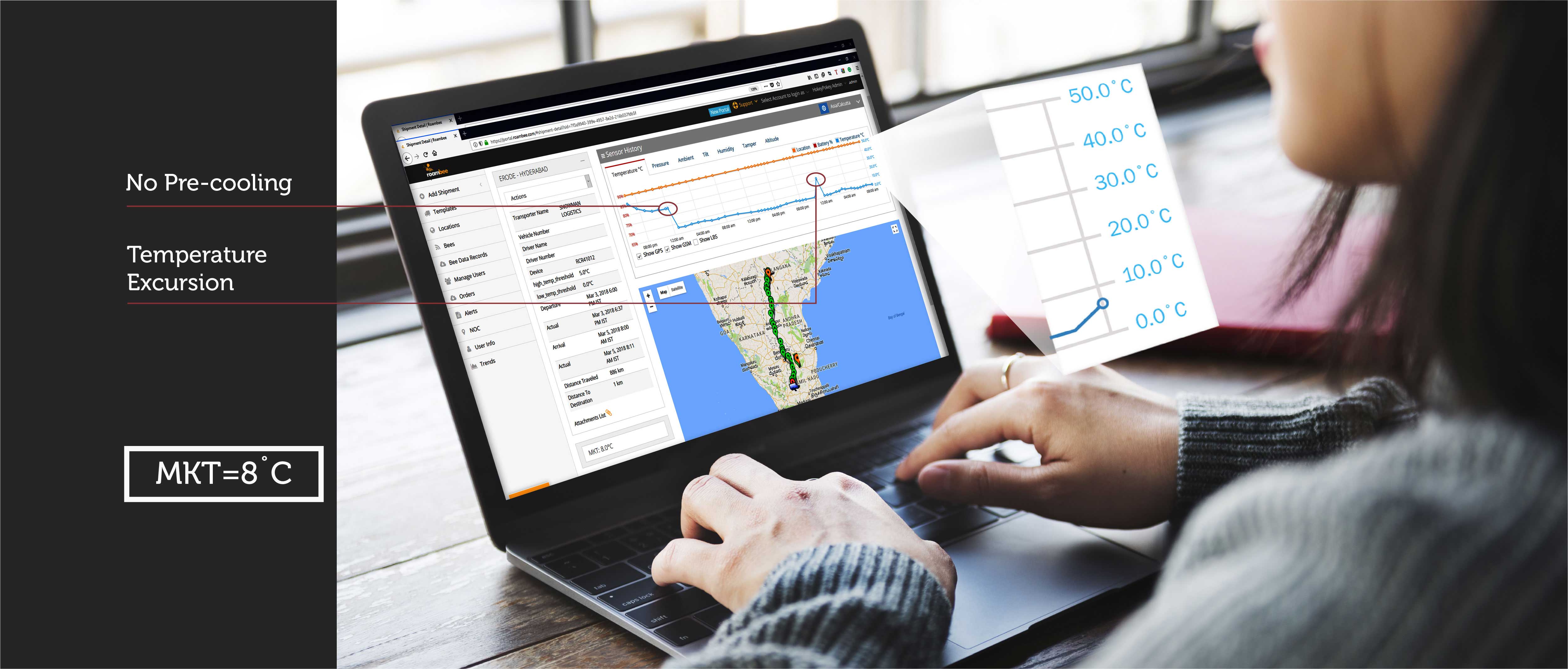While GPS cargo security & tracking systems can improve the odds of tracing stolen vehicles or trailers, can they really address supply chain cargo security and theft management — especially stolen cargo recovery?
Supply chains are complex operations, which creates vulnerabilities for both operations and cargo security. There’s a growing need for effective cargo security solutions, especially for surface transport, where instances of theft, armed hijack, and pilferage continue to rise across the world, despite transporters’ best cargo security efforts against them.
What compounds the problem is the cost of good cargo security, which leads to a shortage of effective personnel and enough resources, which leaves cargo worth billions exposed to the risk of theft every year.
Over 1479 incidents of lack of cargo security leading to theft were reported in the US alone in 2017, while the United Kingdom and Germany logged 1533 and 1077 incidents respectively. Pilferage was the method of choice for cargo theft in 2017; 31% of incidents of cargo theft across the world last year involved skimming from the top.
Even with sufficient cargo security & preventative measures like tamper-proof locks, armed security personnel, and constant surveillance in place, cargo security isn’t guaranteed. Enterprising thieves are smarter and more aggressive now, and they make short work of even the hardiest cargo security and theft prevention measures in place.
For food and pharmaceutical manufacturers, in case of compromised cargo security, the cost of stolen goods isn’t even their biggest concern. They risk losing far more in terms of product safety, brand reputation, and lost market opportunities.
Realizing that prevention is but a part of the precautions necessary to secure cargo supply chains, cargo security strategies are gradually evolving, emphasizing not just preventive measures, but also the recovery of stolen cargo.
The first step to recovering stolen cargo is, but obviously, finding it.
GPS tracking is the technological tool of choice for cargo security right now, with a growing number of fleet operators installing GPS tracking devices — designed primarily for vehicle tracking — on their cargo trucks or trailers.
While that does help keep an eye on things, tracking vehicles or trailers isn’t an ideal solution to secure cargo in transit, nor does it increase the likelihood of its recovery in case of theft.
7 Reasons Why GPS Tracking isn't Enough for Cargo Security
- GPS trackers can help you detect hijacks, not pilferage.

Besides stealing the complete truckload, cargo thieves also routinely create roadblocks that slow vehicles down enough for them to jump aboard to steal goods in transit. Raiding parked vehicles or trailers at rest stops, or stealing goods waiting to be loaded or that are dropped at unguarded yards are also commonplace. Tracking the vehicle in such instances won’t help you spot missing items until after an inventory audit. - GPS-based cargo security systems are prone to false alarms.

A detour, unscheduled stop, or lower than average speed, these are all red flags in a GPS tracking system calibrated to detect cargo theft. These could just as easily be due to legitimate roadblocks, vehicle breakdowns, or safety precautions (like driving slow in fog, over icy roads) that are perfectly reasonable. You can't gauge whether your goods are at risk just by watching a dot on the map, there simply isn’t enough information.
You need more information about the whereabouts of your goods and conditions in the field to determine with certainty if there is a risk.
What to look for in a cargo security tracking system. - GPS tracking for cargo security doesn't extend to the warehouse.

Shipments aren’t just prone to theft on the road, they’re also at risk when they’re loaded or unloaded. Unguarded yards, loading docs without restricted access, and a lack of fool-proof authentication at pickup points (instances of cargo theft by fictitious pick-up are on the rise) all build up to a major gap in the cargo chain of custody.
How to secure warehouse inventory without expensive CCTV cameras, access control systems and manpower. - GPS cargo security trackers don’t work well for multimodal cargo.

Logistics operations these days are rarely point-to-point affairs. Supply chain operations routinely involve multiple modes of transport such as rail, ocean, or air, and one of more forms of surface transport for initial and last-mile delivery. Multiple transport providers are involved and shipments frequently change hands as they move between regions or geographies. Therefore, it’s not always easy to anticipate disruptions, which means you can’t guarantee that the mode of transport and carrier decided earlier will still be a good option one month down the line.
What complicates things is the simple fact that GPS tracking systems aren’t ubiquitous, which means shipments aren’t always carted by trackable trailers, containers or vehicles that they are attached to. Even if they are, it’s difficult to get access to the shipment tracking data, which is in the hands of your 3PL. Even if it is possible, it’ll be years before there’s a consolidated dashboard that’s accessible to all. - GPS trackers for trailers/containers can't track Less-than-load (LTL) or Part-load shipments.

Shippers routinely consolidate their load with others in a common container or trailer, splitting the space with others to reduce the overall cost of transport. Even if the 3PL tasked with transporting your goods has a GPS tracking system installed, and even if they share the data, all you can tell for sure is that a dot on the map is moving. You have no way to tell whether your cargo is on the truck or trailer being tracked. - GPS vehicle trackers are easy to tamper with if you know what you’re doing.

As shipment tracking and security systems have evolved, so have the thieves. GPS vehicle trackers (or container trackers) aren’t difficult to disable, jam, or fool if you know how they work or how to work around them. Cargo thieves routinely look out for anti-theft GPS tracker systems on stolen trucks or cargo trailers, cutting the wires or using signal jammers to render them inert. The more organized lot have even worked out ways to hijack vehicles in motion, keeping things moving along while they clean out the trailer in-transit. Most of the time, they simply pull over and transfer the truckload to another vehicle. By the time you realize something’s amiss and get involved, the thieves have enough of a head start to make recovery nearly impossible. Which brings us to the next, and perhaps most important problem of all. - GPS trackers can help recover stolen vehicles or trailers, but they can't always help to recover stolen goods.

GPS vehicle trackers can tell you where your stolen truck or van is, but they tell you nothing about the cargo inside it. They cannot detect pilferage, part load thefts, or anything short of a full truck theft.
Granted, the sooner you know a cargo laden truck is hijacked, the faster you can act on it, increasing the odds of recovering the complete load.
That’s not always the case however. More often than not, cargo theft — especially for surface transport — happens at remote locations or at odd hours of the night, which means there’s a significant time gap between detection and response. The bigger the gap, the less likely you are to recover the stolen goods. You’d probably be able to find the trailer within a day or two if its GPS tracking system is responsive, but it’s more likely all you’ll find when you get there is an empty trailer. Once your goods are out of the trailer, your odds to track and trace them is pretty much zero.
What is the Solution?
While there are some serious limitations to GPS cargo theft prevention and recovery systems, let’s be clear, the system CAN work out just fine; you just need to make one small — but significant — change to the approach.
You shouldn’t use GPS to track the transport your packages are in.
Rather, you should use GPS to track the package itself.
But, can you really afford dropping a wireless GPS tracker onto every package or pallet you ship?
Learn how you can secure your individual packages and the container using a hybrid IoT approach that combines GPS, GSM, BLE, and Wi-Fi where you have a single gateway device for your trailer and individual tags for your parcels or pallets.
Learn how Roambee is addressing Cargo Security using Bluetooth Low Energy (BLE) Beacons.











